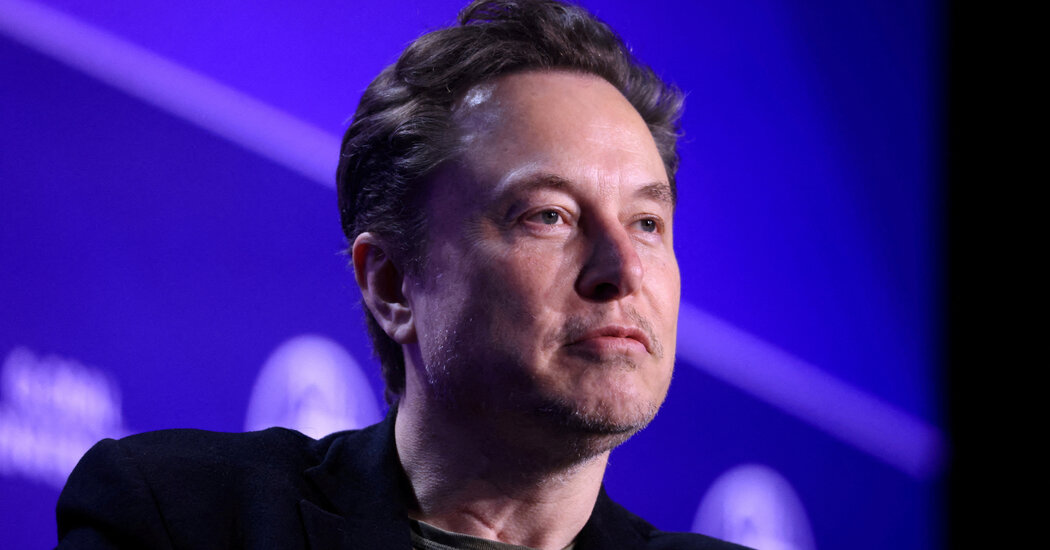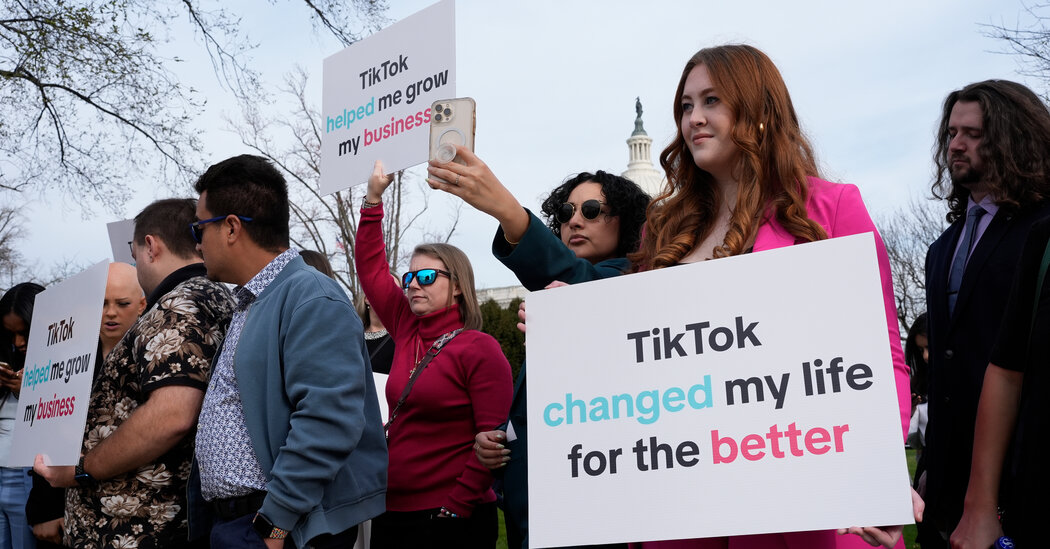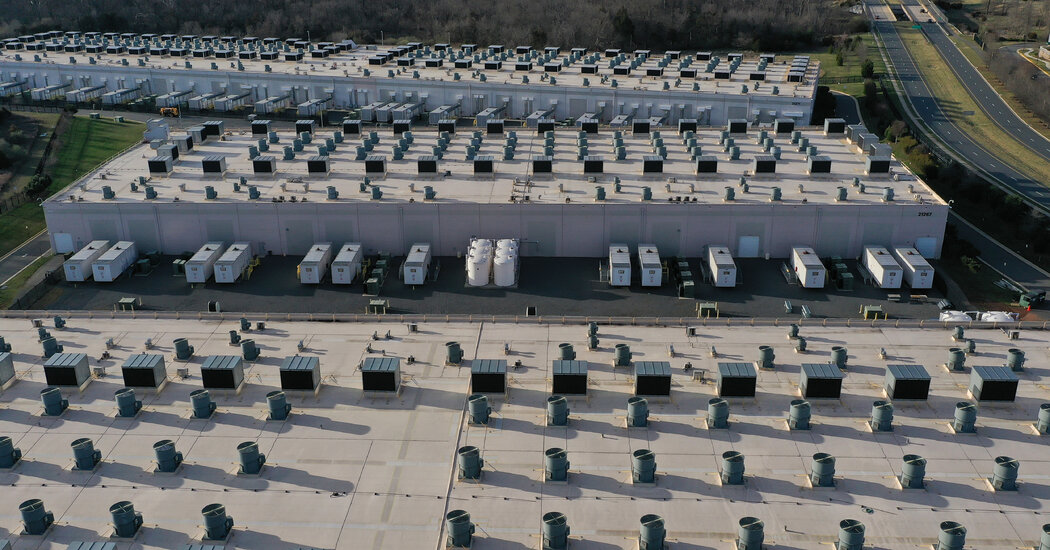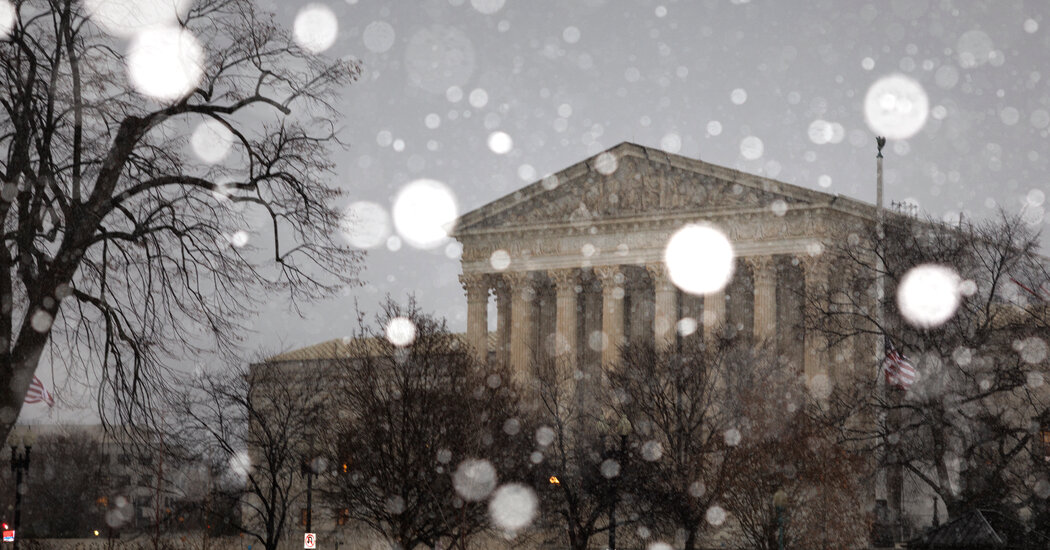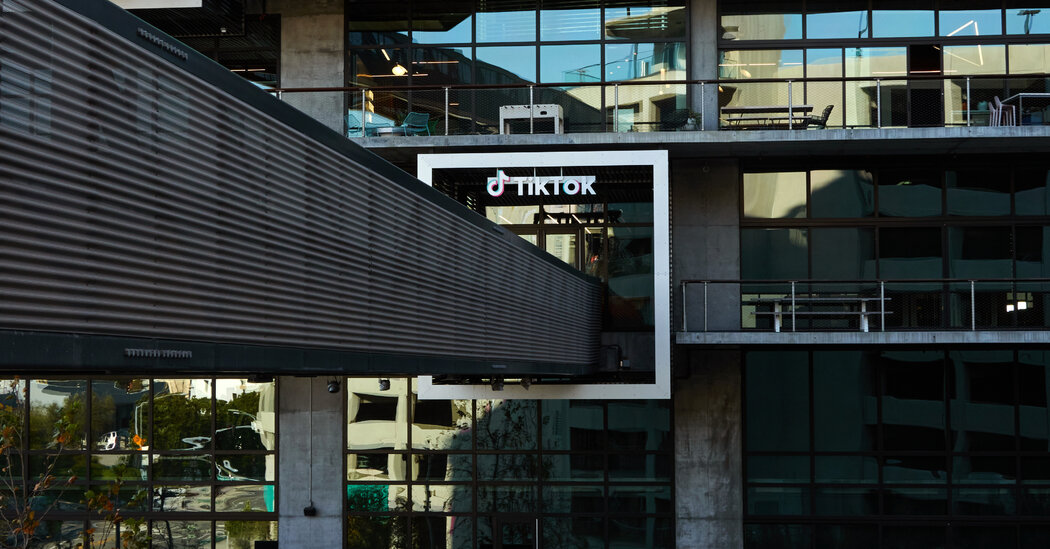Few auto executives are as closely identified with the companies they manage as Elon Musk, the chief executive of Tesla, is. And probably none are more prolific in broadcasting their political views on social media.
But as Mr. Musk’s public persona has become increasingly right wing, Tesla appears to be paying a price in sales, especially to liberal and left-leaning customers who are much more likely to buy battery-powered cars than conservatives are, according to analysts and many car owners who responded to a questionnaire on The New York Times’s website about whether his behavior affected their views of Tesla.
His image as an erratic, impulsive manager appear to have rubbed off on the cars, raising doubts in some people’s minds about their quality and helping to explain why Tesla sales have been falling. On Tuesday, the company reported that its global sales in the second quarter fell 4.8 percent from the same period a year earlier, after an 8.5 percent drop in the first three months of the year.
“Musk is a true lightning rod,” said Ben Rose, the president of Battle Road Research, which has a generally positive view on Tesla’s stock. “There are people who swear by him and people who swear at him. No question, some of his comments are a real turnoff for some people. For a subset, enough to buy another brand.”
Tesla and a representative for the company’s board did not respond to requests for comment.
Some of the more than 7,500 people who responded to The Times’s questionnaire said they were offended by what they perceived as antisemitism from Mr. Musk, which he denies. Some were upset by the way Mr. Musk has managed Twitter, now called X, since he bought the company in 2022. He fired thousands of employees and removed guardrails on content shared on the social media platform. His increasingly friendly relations with former President Donald J. Trump and other conservative personalities were also cited as concerns. A vast majority of the readers who responded to the questionnaire were critical of Mr. Musk.
“You’re basically driving around a giant red MAGA hat,” said Aaron Shepherd, a product designer at Microsoft in Seattle who said he was planning to buy an electric Volkswagen ID.4 instead of a Tesla.
It is not possible to know what price Tesla has paid for Mr. Musk’s political statements and activities. What is clear is that Tesla, once the dominant seller of electric vehicles worldwide, has lost market share in many countries for a variety of reasons. Chief among them is the company’s reliance on the Model Y sport utility vehicle and the Model 3 sedan, which haven’t been substantially updated in years, for almost all of its sales. Other companies are luring buyers by introducing new or updated cars more frequently.
In China, domestic carmakers like BYD have gained ground on Tesla by offering more affordable cars with features that appeal to Chinese consumers, like karaoke. In Europe, BMW, Volkswagen and other local brands are doing well by offering more luxurious or cheaper cars than Tesla. And in the United States, Hyundai-Kia, Ford Motor and General Motors have increased sales by offering a growing selection of models.
Times readers who responded to the online questionnaire said they had been turned off by Mr. Musk’s statements and by their experience with Tesla’s cars and service operations — the company sells and services cars directly, rather than through dealers.
“There’s a time when I’d have given Musk an organ if he needed one,” said Tim Yocum, an engineering director at a software company. But Mr. Yocum, who lives in Chicago, said that he had experienced problems with his Tesla Model S and that he had been unsatisfied with the company’s repair and maintenance services. Mr. Musk’s veer to the right has also upset him.
“Tesla is the only manufacturer in contemporary times that has unapologetically let its C.E.O. take a tiki torch to its good name,” Mr. Yocum said. “This car will be the last Tesla I own.”
Such comments help illuminate surveys that say Tesla’s reputation has suffered recently. The company slipped to 63rd place in the 2024 Axios Harris Poll 100, which asked respondents about their views on corporate brands. In 2021, the company was in eighth place.
Mr. Musk has maintained that his public statements and persona don’t affect Tesla’s sales. “We make the best cars,” he said at The Times’s DealBook Summit in November. “Whether you hate me, like me or are indifferent, do you want the best car or not the best car?”
Mr. Musk still has plenty of passionate admirers. And some said the executive’s public statements would not influence their decision to buy a Tesla. Many people gave him credit for pushing the auto industry to produce electric vehicles, a powerful tool to combat climate change.
“He has led a company that has successfully disrupted a corrupt, lazy car industry,” said Julian Mehnle, a software engineer who lives in San Francisco. While no fan of Mr. Musk, Mr. Mehnle said, “I’m adult enough to separate these concerns from my choice of consumer products.”
Robert Dean, an architect who lives in Redding, Conn., echoed those sentiments: “Musk is a gigantic, disruptive talent with a transformative and positive effect on the world we live in. He also is an oddball personality, but I’m not marrying him; I’m buying cars from a company he brilliantly leads.”
Most of Tesla’s shareholders remain largely supportive of Mr. Musk. Last month, investors endorsed a $45 billion compensation plan for him by a wide margin.
Yet car buyers whom The Times heard from and analysts said Mr. Musk’s political activity had clearly hurt the company’s reputation with left-leaning consumers. And there is little evidence that Mr. Musk’s turn to the right has attracted more conservatives to buy Teslas. In fact, 77 percent of Republicans and Republican-leaning voters said this year that they were not interested in battery-powered cars, up from 70 percent who said the same last year, according to the Pew Research Center.
“He might be winning some people who like his positions,” said Greg Silverman, the global director of brand economics at Interbrand, a consulting firm that advises clients on marketing strategies. But, he added, the odds that Mr. Musk is attracting more customers rather than pushing them away “are very low.”
Interbrand research indicates that a chief executive or other company representative who offends customers can reduce sales as much as 10 percent, Mr. Silverman said.
Some car owners’ concerns went beyond Mr. Musk’s political statements. They cited accusations of racial discrimination at Tesla factories, or the perception that he has allowed racist content to flourish on X. Tesla has denied that it tolerates discrimination at its factories.
“My mother was seriously debating buying a Tesla,” said Achidi Ndifang, who works in information technology in Baltimore. “As a Black person, I felt like it would be an insult for my mother to drive a Tesla.”
Derek Morf, a high school math teacher in Verona, N.J., who owns a Tesla, reported feeling alarmed when Tesla removed the Disney Plus app from some dashboard screens late last year, apparently because Mr. Musk was angry at Robert A. Iger, the chief executive of Disney.
Mr. Morf didn’t care that much about the Disney app, which he hardly used. But, he said, he found it unsettling “that the vehicle I purchased could have features changed in an instant simply because one man had that much control.”
Such concerns could be a liability for Tesla as it pours resources into autonomous driving technology. Mr. Musk has promised to unveil a self-driving taxi on Aug. 8. The technology cannot succeed without trust from consumers.
Many Times readers pointed out that other car companies also had baggage. Volkswagen had an emissions scandal a few years ago. Henry Ford, the founder of Ford Motor, held and spread antisemitic views. A decade ago, G.M. sold cars with faulty ignition switches that were blamed for more than 100 deaths.
Established car companies still sell gasoline cars that emit greenhouse gases and other pollutants. Tesla sells only electric cars.
But probably no other current auto executive has as loud a megaphone as Mr. Musk has, or is more willing to use it.
“If people think that the C.E.O.s of other companies are saints, they are a bit naïve in my opinion,” said Jan Leys, a Tesla owner in Zurich. “They just don’t have as big a mouth and/or platform as Elon Musk.”



